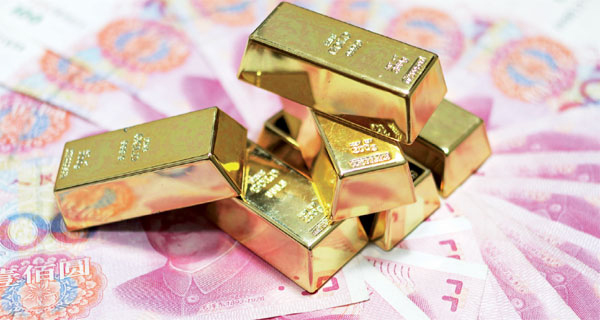 |
|
The Shanghai Gold Exchange is to launch the yuan-denominated gold index this year, predicted to increase China's gold pricing power. [Photo provided to China Daily] |
The country's total foreign exchange reserves, however, shrank by $87 billion last month, the biggest fall since August's record-high monthly drop of $93.9 billion.
Statistics from the People's Bank of China, the nation's central bank, showed that gold reserves rose by 670,000 fine troy ounces, or 20.84 metric tons, to 56.05 million ounces, or 1,743.35 tons at the end of November.
The PBOC added 14 metric tons of gold reserves in October and nearly 15 tons in September.
Despite the increase in the volume of gold holdings, however, the drop in gold prices which have retreated to their lowest level since February 2010-have dragged down the total dollar value of the gold holdings last month to $59.5 billion, from $63.2 billion in October.
Zhang Yanling, a researcher at the Chongyang Institute for Financial Studies at Renmin University of China, said that the increase in gold holdings will help to increase the renminbi's credit rating in the global financial system and further expand its use in international trade and investment.
"The renminbi has been included in the International Monetary Fund's Special Drawing Rights basket. The Chinese central bank needs to increase its gold reserves to support a safe and strong currency," she said.
Meanwhile, the drop in gold prices provided good opportunities for the central bank to increase its holdings to diversify foreign reserves, experts said.
The PBOC's data also showed that total foreign exchange reserves declined to $3.438 trillion last month, down from $3.525 trillion in October.
"November's data add to the impression that selling pressure on the currency remains one-sided after the sharp declines in August and September," said Bloomberg Intelligence Asia Chief Economist Tom Orlik.
Economists expected that the interest rate increase by the US Federal Reserve, possibly after its meeting next week, could trigger the yuan's further depreciation.
